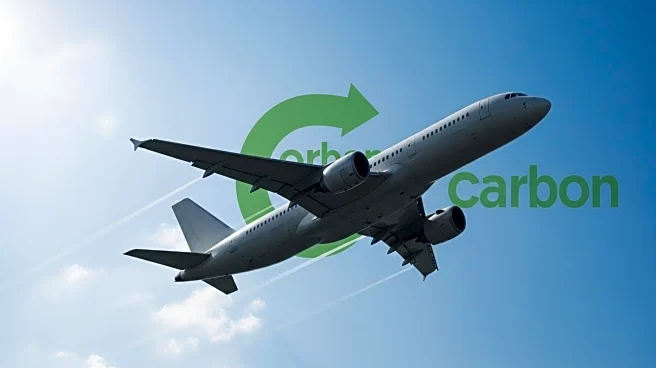What's Happening?
The International Civil Aviation Organization (ICAO) is assessing its progress towards net-zero carbon emissions by 2050, with a focus on the Carbon Offsetting and Reduction Scheme for International Aviation (CORSIA). A new analysis suggests CORSIA could cost European aviation between €7-43 billion over the next decade, with limited climate benefits. Critics argue that the EU should strengthen its own cap-and-trade system (EU ETS) to better incentivize decarbonization efforts.
Why It's Important?
The financial burden of CORSIA on European aviation highlights the challenges of implementing effective climate policies in the sector. The analysis suggests that relying on CORSIA may result in lost revenues that could have been invested in green technologies. Strengthening the EU ETS could provide a more effective framework for reducing emissions and supporting sustainable aviation initiatives. The debate over CORSIA's effectiveness may influence future policy decisions and international climate negotiations.
Beyond the Headlines
The analysis raises concerns about industry influence within ICAO, with meetings sponsored by fossil fuel companies and limited transparency. This could impact the effectiveness of global aviation climate policies. The situation underscores the need for greater accountability and transparency in international climate governance. It also highlights the importance of aligning industry practices with environmental goals to achieve meaningful emissions reductions.












